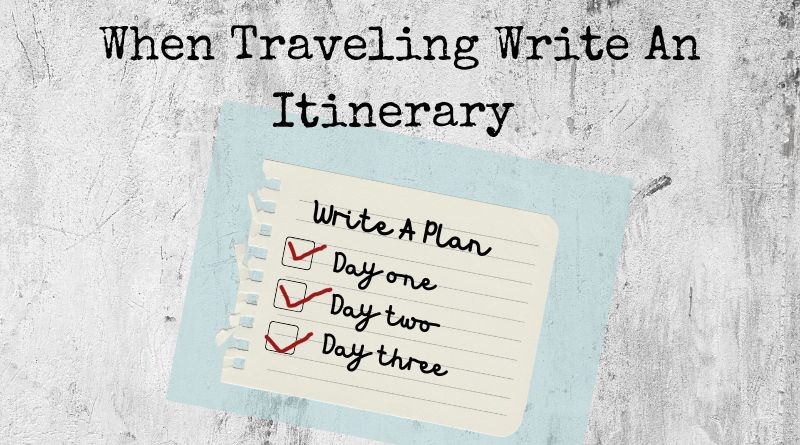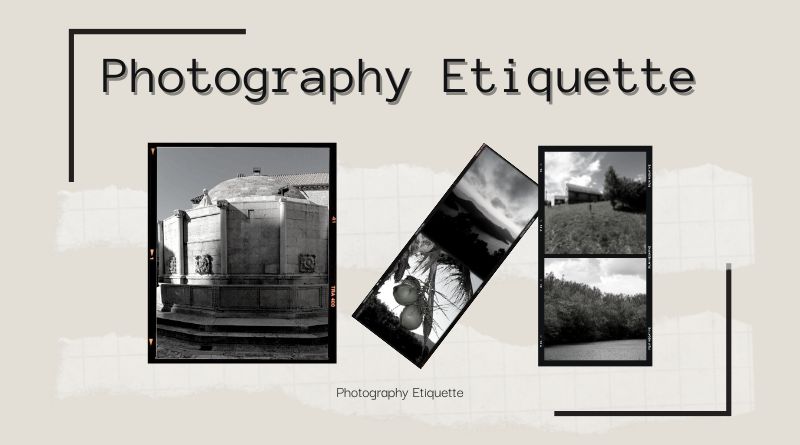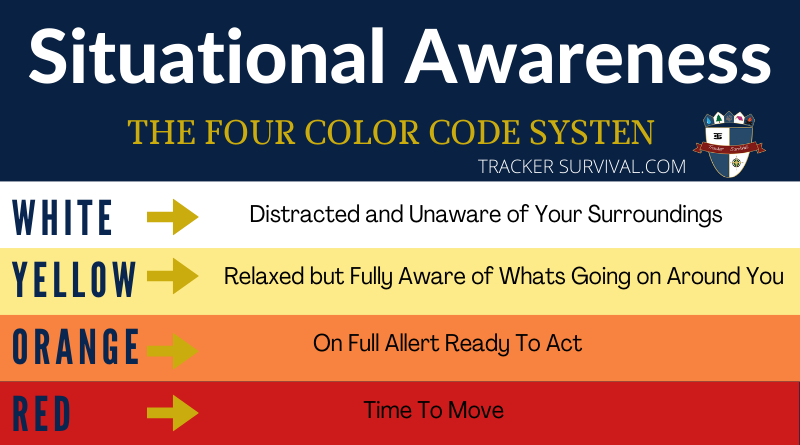Safety Tips For Travelers
Staying safe in your hometown is much easier than staying safe while traveling. In foreign lands, there are dangers that we as foreigners are unaware of. Social customs, taboos, danger zones, and natural disasters that most travelers are unprepared for. Here we cover some basic safety tips for travelers.
It always amazes me that so many people who are preppers and ever so careful in everyday life, seem to just put everything aside when they go on vacation. It’s almost like they take a vacation from being prepared and just leave all their worries behind.
But even on vacation, things can go wrong. And it is best to be prepared.
Safety Tips For Travelers
Even tourist-friendly countries have their dangers, from inconvenient pick-pockets to social unrest and natural disasters.
Something as simple as drinking tap water while traveling could end up having dire consequences.
Even the local government agencies may not be on your side. In many countries, they are just as dangerous as the local criminals. And even the smallest of infractions which they may overlook if the locals commit them may mean a hefty fine (or some palm greasing) for a foreigner.
Research, Planning, And Preparedness
Always do your due diligence, and research the country you are going to visit. After you have a basic idea of the situation in the country, research the specific area you are going to visit.
Research
Natural disasters in the area, severity, and frequency.
Social Situation, unrest, riots, and anti-government sentiment.
Local customs and taboos, specific clothing to wear, things a person should do, and things a person should not.
Unsafe areas, even relatively safe countries have areas to be avoided.
The crime rate, some countries have a reputation for pickpockets, muggings, barroom brawls, recreational drugs and even kidnappings. Make sure you know what you are getting into.
Common crimes. Research which are common crimes in the area you are visiting.
Level of corruption, be aware in some countries the level of corruption is higher and in some it is lower. Research your destination and prepare yourself accordingly.
If they are friendly to foreigners, some places, are not as welcoming of foreigners as others.
Is the tap water water safe to the drink, this is a common mistake that first-time travelers make, they visit a country and ask the locals if the tap water is potable, often the answer is “yes”, and that would be true for a local, but for someone not used to the water, they may end up sitting on the throne for a couple of days, before they acclimate.
Emergency services numbers, ALWAYS write down the emergency services number for the country you are planning to visit. And while you are at it, write down the address and telephone number of your Embassy or Consul.
Planning
Write down a plan, of where you intend to visit, what you intend to do, and the experiences you want to have on your journey. Being spontaneous is great, having a plan is better. Give a copy of this plan to a family member or friend, if something does happen, they will be able to notify the authorities of what your plans were, and even if you changed them, at least the authorities will have a starting point.

Preparedness
Once you have done your due diligence, research, and planning, it is now time to prepare some essential gear.
Get vaccinated if necessary.
Survival filter and iodine tablets.
Spare clothes for the environment you are going to be in.
Money belts are much safer than money pouches that are worn around the neck.
Photocopy of all your documents.
Local currency.
Debit card (keep your credit cards for emergencies).
Take a photo of your bags and valuables at home and before getting on the plane.
Pass a copy of your itinerary to a family member or friend, and update them if there are any changes by phone or email.
Get a local prepaid sim card for your phone with a data plan (do not use the local public WiFi).
Travel With Someone
Traveling with a family member or friend has its pros and cons, the obvious benefits are that it is safer to travel with someone, two pairs of eyes are better than one, and they can watch your back, and you theirs. If either one gets into trouble, falls ill, or has an accident, the other assist or go for help.
The disadvantages are, they may have different interests or different energy levels. Some people envision a relaxing holiday, sitting by the pool with a little bit of sightseeing. Other people want to see and experience as much as possible.
Situational Awareness
Everyone should practice situational awareness at all times, but it is even more important in unfamiliar terrain. Situational awareness should come as second nature. For those who are new to situational awareness. Check out this article What is Situational Awareness, for those who want to improve their situational awareness, check out Situational Awareness Training.
Do not wear headphones while walking around.
Do not walk around texting on your phone.
Be aware of your surroundings at all times.
Feel the room, if the atmosphere feels unsafe, get out of there. Trust your instincts.
Avoid rallies and demonstrations. As a foreigner you will most probably not be able to gauge when a peaceful rally/demonstration is likely to turn violent.
Walk on the inside of sidewalks. In some countries, snatch thieves are common. Keep your eyes peeled for any motorcycles or cyclists trailing behind you.
When on buses and trains, keep your wallet in your front pocket. if carrying a bag or purse, carry it in front of you, pickpockets are prevalent in any tourist popular country. Be aware of anyone who shows an undue interest in you.
Social Skills
Social skills can get a foreigner out of many sticky situations. Read the room, be polite, and non-aggressive, speak calmly, and know the local customs when it comes to body language.
Eg: In Australia among the Aboriginal people, avoiding eye contact is a sign of respect.
While in the Middle East, eye contact between people of the same gender is a sign that a person is being honest, if you avoid eye contact, they will assume you are up to something fishy. They may maintain eye contact almost to the point of staring. On the other hand, eye contact between the opposite sex is much more fleeting.
Ref: Queensland Government Health Australia
When In Rome
I am sure most people have heard the phrase “When in Rome, Do as the Romans do”, this motto will greatly assist a traveler/tourist, observe the locals. A simple example would be in many parts of Asia. Zebra crossings are often ignored by drivers. Watch the locals, and follow behind them. Don’t just assume that vehicles will stop. If locals avoid an area, do the same. If a local warns you to stay away from an event or not to take a scenic route. Listen.
Travelling Clothes
Dress appropriately for your destination, that does not mean that you should dress as the locals do, that would just be awkward. But appropriate to your environment and if at all possible, dress casually but conservatively. I have seen a lot of tourists arrive in Asia wearing Hawaiian shirts and short pants and they stick out like a giraffe in a waddle of penguins. Also, leave the witty t-shirts at home. Nothing stands out more than a tourist with a t-shirt that says “fcuk” or “I got a dig bick”. Note that some countries are more conservative, and the locals will instantly notice. And the aim is to blend in.
Essential Travelers EDC
Passport, Travel insurance card, ID, and driver’s license.
Money belt, as well as a wallet.
Local currency as well as some USD or Euro.
Torchlight, you never know when the power may go out.
Water filter and water purification tablets.
Compass and map of the area you will be traveling in.
Smartphone, make sure to download an offline translator, you will not regret it.
Powerbank and cables, get a power bank with enough juice to recharge your smartphone at least twice.
Pen and Paper.
Local phrasebook, being able to communicate, even poorly is better than not being able to communicate. Do NOT assume people will understand your language.
Pocket Knife (be aware that in many countries, pocket knives are prohibited), for traveling, I usually carry a little SAK (swiss army knife). But just to be safe, always check local laws on knife carry, in some countries, even a multi-tool is illegal and carries either a hefty fine or a jail sentence.
Cordage, a paracord bracelet is a good idea. And the best ones are the ones you have made yourself.
Duct tape, I keep some wrapped around an old card. Comes in handy all the danged time.
Lighter, carry a couple, even if you don’t smoke.
A whistle is the best way to attract attention if you need help. The sound from a good emergency whistle carries for quite a distance.
Emergency contact numbers on a piece of paper or card, if you can memorize the numbers, that would be great. if you are absent-minded as me, write it down.
Essential Travelers Gear
Copy of all documents, passport, driver’s license, ID, plane tickets/train tickets, etc. Keep the copies separate from the originals.
Spare clothes should be self-explanatory.
First Aid kit, including prescription medication you may need daily.
Shemagh or large bandana, regardless of the weather, a shemagh has multiple uses beyond just a head covering. Check it out 14 Uses For A Shemagh
Water bottle, a single-walled stainless steel water bottle is great.
Dry bag and ziploc bags, in case you need to keep some of your items dry, throw them in the dry bag or the ziploc.
Toiletry kit with wet wipes, sanitizer, an n95 mask, or its equivalent.
Pre-paid cards, sim card for the phone, credit or debit cards, etc
Travel power plug adapter, different countries have different power sockets. The market is flooded with Travel adapters that can be used in different countries.
Foreign Officials
Be aware in some countries police/military are not as friendly to foreigners as you may be used to. Comply with ALL local laws, do not be belligerent, and make demands. If in doubt, smile and act confused, politely ask what the problem is.
If there are any legal complications request that you be allowed to contact your Embassy or Consulate as soon as possible. The embassy/consulate can contact your family, who should seriously consider hiring you a local attorney. Since I mentioned an Embassy or Consulate, Do write down the address and phone number of your countries Embassy/Consulate and keep it in your money belt.
Photography Etiquette
Everyone wants to snap pictures of their travel destination to share with friends and family. But not every country is photo friendly. In some countries, taking photos of certain buildings is off-limits and could get you a hefty fine. In some societies, people will become aggressive if photographed, either due to religious beliefs or just because they are not used to being photographed.
Be careful when snapping photos, do not assume that a selfie is harmless the building in the background may be off-limits. It is always best to check if it is acceptable before taking photos. You can check online, or inquire when checking into your hotel.

Cash And Credit Cards
Carry prepaid credit cards or debit cards and cash in local currency as well as in USD or EURO. I always keep most of my money and cards in my money belt.
I keep what I plan to spend for the day in my wallet, along with my prepaid cards. So if I somehow lost my wallet, the majority of my funds would still be safely tucked away in my money belt.
Safety Tip: if you are changing currency at local money changers or banks. Do NOT change large sums of money at once. I know some money changers/bank cashiers tip off pickpockets/muggers.
Conclusion:
Just because you are traveling or on vacation, does not mean that you should not be prepared. Shit Happens, it can happen, anytime and anywhere. A few simple precautions may make the difference between an inconvenience and a danged catastrophe.
A couple of safety tips for travelers Tip:
Mark your bag, with a big sticker or even with just some masking tape, so that you can easily identify your bag from a distance. eg: on the baggage conveyor belt in airports. Prevents people from walking off with your bag.
Be Aware of Motorcyclists. In some Asian countries that snatch thieves are one of the more common petty crimes. Motorcyclists will ride close to a person and snatch their purses, gold chains, cameras, or money pouches that hang off the net.
Do NOT leave valuables on the table. There are quick fingered people that love crimes of opportunity.
